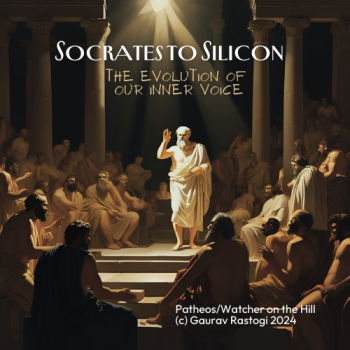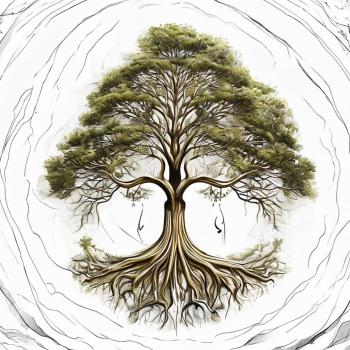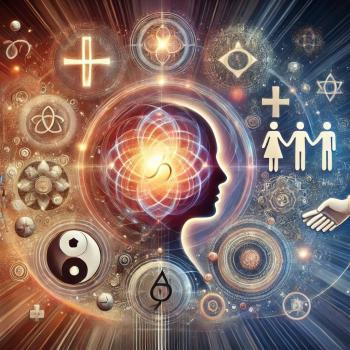The philosophy of Effective Altruism has been in the news lately, thanks to the developments in Crypto (SBF) and OpenAI. I decided to look a little deeper into the philosophy and compare it with traditional Hindu thinking.
The allure of Effective Altruism (EA) is undeniable. It presents itself as the savior of the modern world, promising to solve complex problems through data-driven solutions and rational decision-making. But beneath the veneer of objectivity lies a dangerous flaw: a reliance on cold logic devoid of the essential warmth of humanity.

EA’s claim to moral superiority rests on its promise of maximizing positive outcomes through meticulous calculations. This utilitarian approach, however, ignores the fundamental human need for meaning and purpose. Without the fire of conviction and the guiding light of duty, EA’s meticulously planned actions risk becoming mere algorithms devoid of the emotional depth that truly inspires and motivates.
In more human terms, this is a quasi-religious system based on logic, reasoning, and data. Lots of data. It reminded me of my old boss, whose dictum was, “In God we Trust; everyone Else Must Bring Data.” It seems In Data We Trust might be the new law.
When I was in grad school, I took a course on Management for Excellence. The professor described a system of excellence that involved doing great work and doing good in the community. I asked him the same question, “What if someone earns a lot of money and donates it to worthy causes? Is that not also excellence?” He answered that excellence isn’t simply in mathematics. It’s a way of being.
Dharma, the ancient Hindu philosophy, starkly contrasts EA’s sterile world of data and spreadsheets. It offers a framework for moral action rooted in personal responsibility, spiritual guidance, and a deep understanding of one’s place in the universe. Fulfilling one’s Dharma is not about maximizing measurable impact but about aligning oneself with the divine order and contributing to a greater good that transcends individual calculations.
The Bhagavad Gita, a cornerstone of Hindu philosophy, beautifully illustrates this contrast. When Arjuna, the warrior, hesitates on the battlefield, overwhelmed by the prospect of bloodshed, Krishna, the divine embodiment, guides him. Krishna does not offer cold calculations or statistical analysis. Instead, he reminds Arjuna of his duty as a warrior, his Dharma. He reminds him that his actions are part of a larger cosmic plan, a tapestry woven with individual responsibility and divine purpose.
In the verse that follows the one Robert Oppenheimer quoted (“I am become Death”), Bhagavad Gita, Chapter 11, Verse 33, stands as a powerful testament to the intersection of duty, action, and divine will. In this verse, Krishna, the embodiment of the divine, urges Arjuna, the hesitant warrior, to fulfill his duty by fighting in the Kurukshetra war. The verse declares, “Therefore, arise and attain honor! Conquer your foes and enjoy prosperous rulership. Verily by Myself, they have already been slain; be you a mere instrument, O ambidextrous archer.”
With both hands, engage in righteous action. Not with your spreadsheets and calculations. With Dharma.
While EA promises efficiency, it risks sacrificing the very essence of what makes us human. It encourages us to view our actions as mere transactions, devoid of the emotional connection and moral compass that truly define our character. Dharma, on the other hand, reminds us that our actions are not merely data points; they are threads woven into the fabric of the universe, carrying the weight of our duty and the potential for profound impact.
Dharma offers a vital antidote in a world increasingly consumed by data and algorithms. It is a call to action for efficiency, empathy, compassion, and a deep understanding of our interconnectedness with all beings. It is a reminder that true progress is not achieved through cold calculations alone but through the unwavering pursuit of our Dharma, the path of moral action that lights our way toward a brighter future.
















